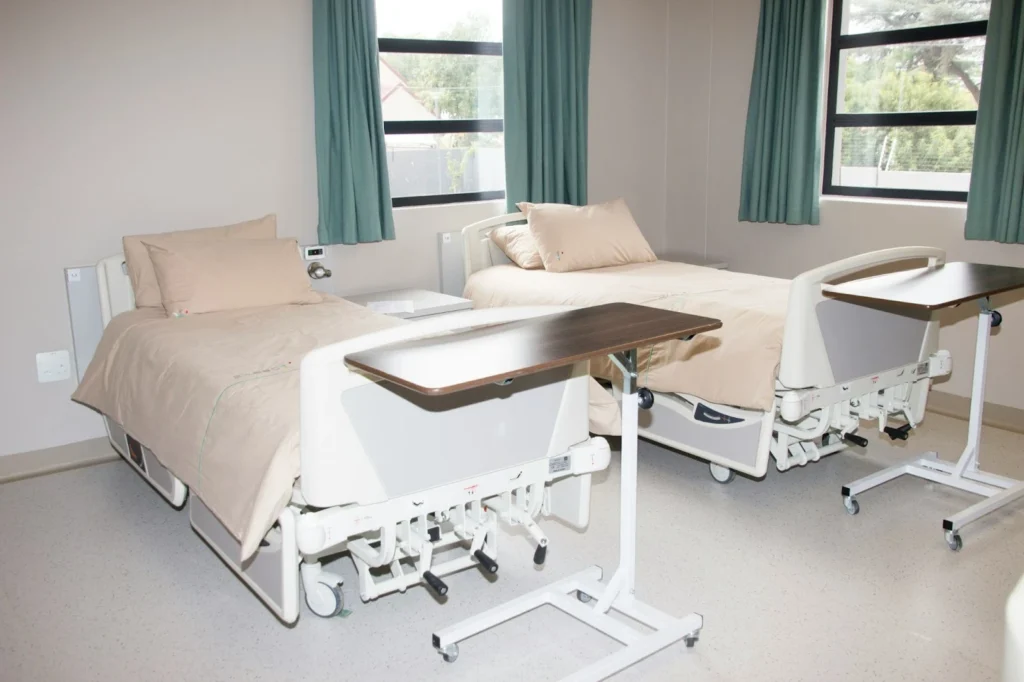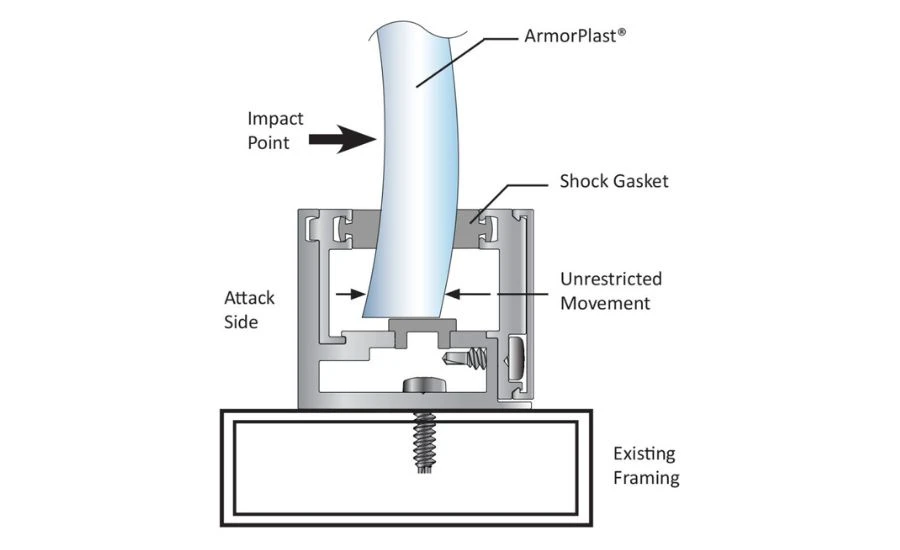Written By: Brad Campbell | April 18, 2025
Hospitals and healthcare facilities must balance patient comfort with security. While windows provide natural light and outdoor views that can aid recovery, they can also pose significant safety risks.
Traditional hospital windows are vulnerable to breakage, forced entry, and self-harm attempts. Installing human impact-resistant windows helps mitigate these dangers, providing critical protection in high-risk areas such as patient rooms, psychiatric wards, and hospital lobbies.

Windows are an important feature of hospitals and other healthcare facilities, serving several vital purposes. These include allowing natural light in and providing patients with views of the outdoors, both of which are proven to reduce stress and anxiety.
These benefits can be very helpful to patients who may be going through a very difficult time in their lives. However, windows also present many safety and security issues in healthcare facilities.
Standard commercial windows are incredibly easy to break, so they provide a potential exit point for unwanted egress, including patients jumping from hospital windows.
Broken glass can also potentially be used by mentally unwell or intoxicated patients to harm themselves or others. This is why medical and mental health facilities need human impact-resistant hospital windows.
Human impact-resistant windows are designed to resist impacts from humans using their fists or the full weight of their bodies. They’re also able to withstand blows from other heavy objects that patients may gain access to to try and break a window.
Hospital windows intended to prevent egress and self-harm must undergo human impact testing to gain certification as human impact-resistant windows. This human impact testing is performed under controlled conditions in a laboratory setting.
A security glazing manufacturer seeking human impact certification for their products provides a series of samples to the testing lab, and they then undergo a series of specific impact tests.
If the tests do not penetrate, shatter, dislodge, or otherwise compromise the strength of the glazing, the samples pass the test and the products can be certified as human impact-resistant.

Human impact-resistant windows can be made from a variety of different glazing materials.
However, polycarbonate-based glazing is typically the best option for hospital windows. Being made from glass-like plastic, they are virtually unbreakable.
Polycarbonate looks and feels very much like standard commercial window glass, but it does not break or shatter due to human impacts or other high-force impacts.
When glass hospital windows are protected by polycarbonate-based security glazing, they still provide all the benefits of natural light and views to patients, but are completely safe and secure.
While patient rooms and psychiatric wards are commonly associated with hospital security glazing, healthcare facilities often contain multiple high-risk areas that require impact-resistant security barriers to protect both staff and visitors:
The growing concern of violence in healthcare settings makes it essential to reinforce these locations with human impact-resistant security glazing.

Besides mitigating the risks of egress, self-harm, and harm to others in hospitals and other healthcare facilities, impact-resistant windows provide a full range of other safety and security benefits.
Impact-resistant healthcare facility windows protect against:
For example, hospitals in hurricane zones can protect exterior windows on both sides with security glazing shields, reinforcing the glass against human impacts on the inside and acting as a storm damage mitigation barrier on the outside.
If a flying piece of storm debris impacts the outside surface of the window, the glass won’t shatter dangerously inwards, which could cause injury to staff and patients and leave the hospital exposed to wind and water damage.

Human impact-resistant windows can also be forced entry-rated to prevent burglary and other unwanted intrusions through hospital windows. As hospitals are full of expensive medical equipment and prescription medications, the threat of burglary is very real.
For medical facilities that need to upgrade their safety and security protocols, impact-resistant windows are one of the most cost-effective ways to harden the entire building’s security.
Traditional solutions for egress and forced entry prevention, like window bars, make mental health facilities and hospitals look and feel like jails, which is unsightly and detrimental to patient mental health.
On the other hand, polycarbonate security glazing fortifies buildings without making them look fortified. This is ideal for medical facilities, where you want people to feel welcome and as comfortable as possible at all times.
Riot Glass offers a range of human impact tested and certified security glazing products, including our flagship ArmorPlast line of polycarbonate-based security glazing.
For hospital and other healthcare facility applications, we typically recommend containment-grade ArmorPlast AP25 glazing panels, which strike the perfect balance between strength and cost.
AP25 glazing shields are non-ballistic (not bullet-resistant) polycarbonate sheets that are rated to withstand human impacts, large hurricane missile impacts, and forced entry attempts.
All our ArmorPlast products are fully retrofittable solutions, meaning they are designed to be fitted over your existing windows and other glass surfaces, including glass doors. In other words, there’s often no need for expensive glass removal or replacement.
AP25 uses retrofittable security framing adapters that fit into or onto your existing window and door framing systems, securely protecting the glass behind from all types of high-force impacts.
The crystal-clear polycarbonate doesn’t noticeably alter the appearance of your windows, and it doesn’t block out natural light or inhibit views. The security framing has a sleek profile, so AP25 doesn’t significantly alter the outward appearance of your building, either.
These features make AP25 ideal for hospitals, psychiatric wards, and other medical facilities where human impacts and other safety and security risks are concerns.
AP25 containment-grade glazing shields are also ideal for:
For even better human impact protection for hospital windows, we recommend pairing ArmorPlast AP25 with our Gen II Series security framing.
This security framing uses a sophisticated system of shock-absorbing gaskets to disperse the force of impacts on the surface of the glazing. When someone or something impacts any part of the security glazing, the shock gaskets allow unrestricted movement at the edges of the infill, dispersing the shock waves from the impact site.

Gen II framing is designed to withstand even the most determined, prolonged attacks with heavy tools. For medical facilities, this provides the ultimate line of fenestration security to mitigate all potential safety and security risks.
Investing in human impact-resistant hospital windows is a proactive step toward improving safety and security in healthcare facilities.
With the right security glazing, hospitals can protect patients, staff, and assets while maintaining a welcoming, therapeutic environment.
Riot Glass offers proven solutions that reinforce existing windows without compromising aesthetics.
Contact our team of security glass experts today for more information about our tried-and-true hospital glazing products or to schedule a free consultation.

HOW CAN WE HELP YOU?
